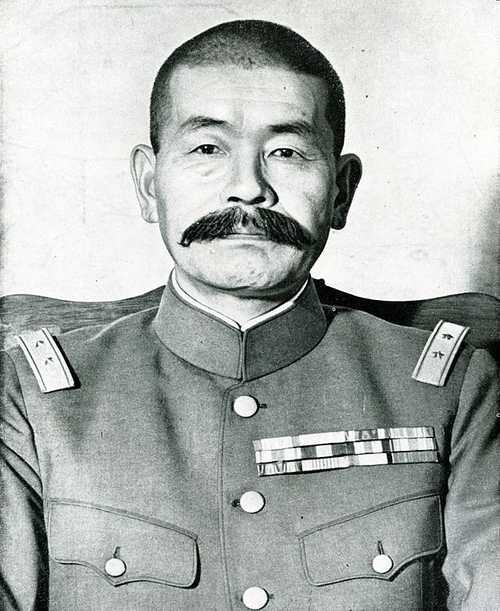
German Forces
Shizuichi Tanaka - a somewhat contradictory figure
Imperial Government of Japan/US National Archives
General Shizuichi Tanaka of the Imperial Japanese Army. Tanaka enjoyed a distinguished career in the IJN, serving as Governor of the Phillipines, 1942-1944. Forced to return to Japan in 1944 (he had contracted malaria), Tanaka was appointed to the Supreme Imperial War Council, Army Commander of the Eastern (Japan) District, and acting commander of the 1st Division, Imperial Guard. In the latter capacity, he was largely responsible for foiling the 15th August, 1945 attempted military coup by IJN officers opposed to Japan's surrender. This coup attempt was not supported by most of the senior officers, a number of whom were assassinated for refusing to join it. The success of the coup hinged entirely on control of the Imperial Palace and Imperial Palace Department complex, and on persuading the Imperial Guard to support the coup. Tanaka avoided assassination, and confronted the plotters at the Palace, denouncing the coup and ordering the Imperial Guard to return to their duty to the Emperor and their "code". The coup attempt promptly collapsed. Tanaka was hailed as a hero for his actions in relation to the coup attempt (notably by the Emperor). However, as Commander of the Eastern District, he was depressed by his failure (inevitable) to prevent the destruction rained on Tokyo by the USAAF. Not that he could really have done much about it anyway. In consequence, following the surrender, he ordered his subordinates to burn the unit standards (but not to commit suicide). He himself, however, committed suicide by pistol shot. There are a couple of interesting points that are worth attention. If he had been alive, Tanaka's responsibility for the activities of the Japanese during their occupation of the Philippines would very likely have attracted the attention of Allied war crimes prosecutors after the war, sufficient perhaps to have him hanged. Like Yamamoto, he was very familiar with the West, having earned a degree in English Literature from the University of Oxford and led the Japanese contingent in Allies' victory parade in London following WW1. This foreign exposure was probably responsible for his opposition to Japan's initiation of war against the USA in 1941 but - like Yamamoto and others who shared this view - he went on to serve loyally in Japan's Pacific and Chinese wars. Like Yamamoto, he was in the end, "the sword of his Emperor". Best regards, JR.
3730 Views
7/31/2014
